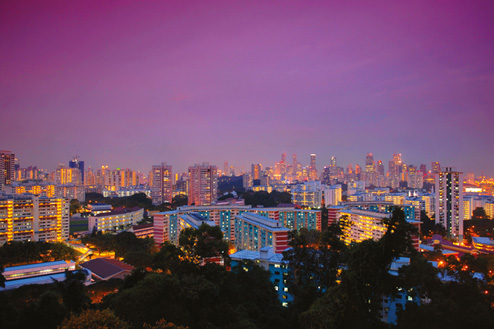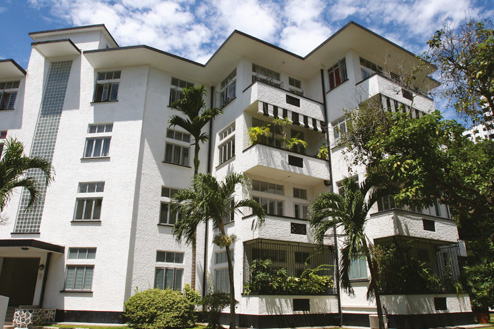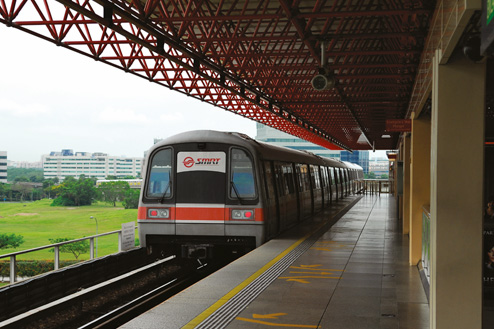Pets
Pets are generally well-liked and accepted in Singapore, and dogs in particular are commonly kept as pets. However Singapore has a large Muslim community and it’s important to respect that for religious reasons, Muslims won’t want to come into physical contact with dogs. Cats are also kept as pets, but the large population of stray cats suggests that, sadly, abandonment is not uncommon.
The accommodation you choose will have an impact on the type of pet, if any, that you can keep. If you’re renting you might find that only certain types of pets, or even no pets, are allowed. This is at the property owner’s discretion so check your lease to make sure you’re not breaking any rules.
Dogs and cats are happier with more space, so take this into consideration before buying a pet or bringing one over from your home country.
Major pet shows are held from time to time. The Singapore Cat Club and the Singapore Kennel Club organise shows and competitions which are often held at the Singapore Expo exhibition facility.
Cats & Dogs
If your rented accommodation allows you to keep dogs you must still abide by a government regulation that limits the number of dogs in residential premises to three. All dogs older than three months must be licensed with the Agri-Food & Veterinary Authority and must have an identification tag attached to a collar on their neck. Dog licences are available at the AVA Animal Control Section, which is located at 75 Pasir Panjang Road, or you can apply by mail or on www.ava.gov.sg. Your dog licence must be renewed annually and you must notify the AVA of any changes in ownership or address, or if your dog is lost or dies. Dogs must be confined to their owner’s premises, or must be leashed and supervised when out in public. The AVA website also has a list of which breeds must be muzzled when out in public. You also have to scoop up your dog’s poo so don’t leave home without a plastic bag or three when you take your dog for a walk.
When buying a dog or bringing one to Singapore, you should take the tropical climate into consideration. Dogs with thick fur that are used to cold climates may suffer in the heat and humidity. Leaving a dog outdoors in a garden without sufficient shade and water in the hot equatorial sun could cause them to suffer from heat stroke.
Dogs are generally allowed in any outdoor public places but not in shopping malls or on public transport. Some taxi drivers will be happy to pick you and your dog up, but others will simply drive past, particularly if it’s raining. There are plenty of good parks for walking your dog, such as the Botanical Gardens, Bishan Park and Tanjong Beach on Sentosa Island.
Cats do not need a licence and there are no government restrictions on the number of cats that you can own. If you are renting you should check with your landlord whether you’re allowed to keep a cat.
Fish & Birds
Singapore is a top exporter of ornamental fish, which are popular as pets. There are several hundred pet shops carrying a rainbow of species in all colours and sizes. A popular choice among locals is the flower horn fish, also called luo han which has markings that some believe represent lucky lottery numbers. Birds are also common pets, with an abundance of colourful species from around the region available in most pet shops.
Pet Shops
Singapore has hundreds of pet shops selling a wide variety of small mammals, fish and birds. Most shops operate legally and treat their animals humanely but Singapore does have its share of illegal trade in endangered animals. Some pet shops carry everything from endangered turtles to rare birds and illegal snakes and lizards. Raids are conducted from time to time by the Agri-Food & Veterinary Authority but enforcement is insufficient to stem the trade entirely. Pet shops must have a licence from AVA in order to operate, so make sure that a shop is licensed before you buy a pet.
Vets & Kennels
Veterinary clinics are scattered across the island but a number are clustered in the Bukit Timah area. Some clinics charge heavily for service outside of regular weekday work hours, so if your pet has a minor health problem at a weekend it may be worth your while to wait until Monday morning to take it to a vet. Rates do vary so shop around.
Kennels usually offer both non air-conditioned and slightly more expensive air-conditioned facilities. Pet Movers offer two sizes of kennels, ranging from $20 to $25 per day for air-conditioned units and $15 to $20 per day for units without aircon. Cats can be booked into an air-conditioned cattery for $12 per day, but they have to have a $30 preventative external paraciticide treatment upon arrival.
Grooming & Training
Unless you come from a country with a climate similar to Singapore’s, your pet may take time to adjust to the heat and humidity. You can make this transition easier for your pet by ensuring that it has access to an air-conditioned area in your residence. Due to the heat, dogs and cats tend to shed more here. Fleas are uncommon in Singapore, but you should be vigilant for ticks, especially if you have a garden.
There are many pet grooming companies in Singapore (see the Pets Services table below). Prices vary, but you can pay around $50 to $100 for a full grooming session for your dog or cat. Obedience training services are also available and cost from $150 to $400 for a multi-week course.
Bringing Your Pet to Singapore
Some breeds of dogs are prohibited in Singapore, including pit bulls, akitas and Neapolitan mastiffs. You should check with the Agri-Food & Veterinary Authority to ensure that you can bring your pet into the country before making any arrangements. There are four main requirements for importing your pet into Singapore:
• Health certificate – An original certificate from a vet in your home country indicating that your pet is healthy must be issued no more than seven days from the date of entry into Singapore.
Vaccination card – Dogs and cats must have a record showing that they have had various vaccinations; contact AVA for specifics (www.ava.gov.sg).
• Microchip – Dogs and cats must have an ISO-compatible microchip for identification; if they do not have one, AVA officials may issue them one.
• Import permit – You have to get an import permit from AVA at least two weeks prior to importation and pay an importation fee of $50 per pet.
• Reserve quarantine space – Your pet must be quarantined for 30 days upon arrival in Singapore (except those from Australia, UK, Ireland and New Zealand) so you need to reserve a space for your pet at the official quarantine facility by submitting the ‘application and acceptance for quarantine space’ form to AVA. All cats and dogs will be given a mandatory rabies vaccination.
• Pet Movers offers a wide range of pet services, including assistance with bringing your pet to Singapore and exporting it out again. To find out more visit www.petmovers.com.sg.
Taking Your Pet Home
You will need an export permit from AVA to take your pet out of Singapore. You must apply for the permit at least seven working days before the date of export, and the permit is valid for 30 days from the date of issue. You will probably also need permission to import your pet into your destination country. You should check out the new country’s requirements well in advance because there are often stipulations such as vaccinations should have been done no less than 30 days before the animal is to travel.













